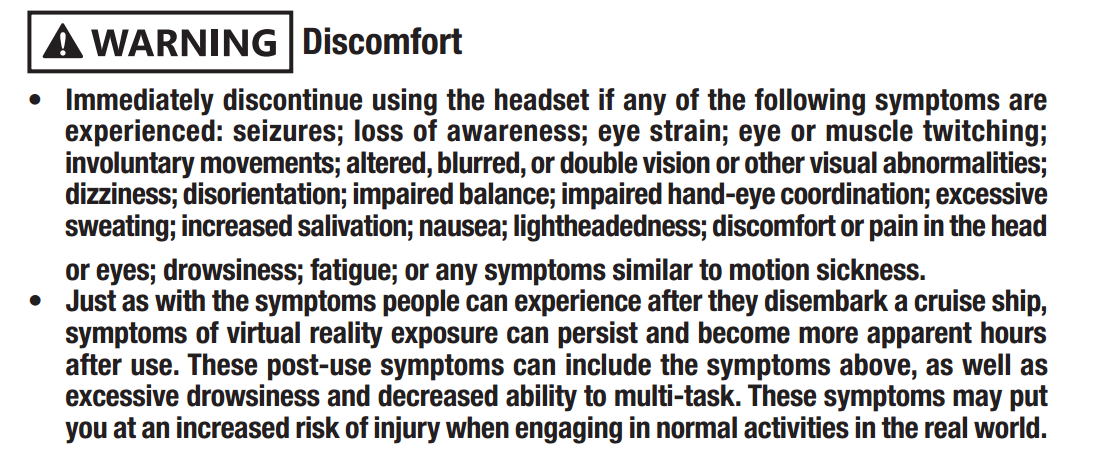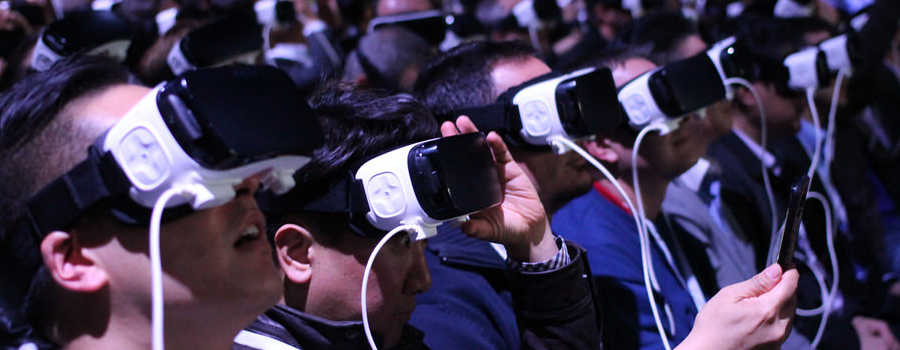Virtual reality technology has rapidly advanced in the last two decades, but the lack of information and research into its long-term effects have some experts concerned that using VR could possibly lead to addiction and be detrimental to your health.
As prices fall towards the $1000 mark on full-immersion VR kits, those who have the cash to burn have easier access than ever before to bring the VR experience into their homes.
Currently, VR is generally only capable of providing audio-visual immersion with experts predicting the abilities of the technology will extend greatly over the next two decades to include tactile and haptic feedback.
Late last year, Dr Mar Gonzalez Franco, as part of the 17 for ’17 Microsoft researchers event said, “By 2027 we will have ubiquitous virtual reality systems that will provide such rich multisensory experiences that will be capable of producing hallucinations which blend or alter perceived reality.”

Imagine how tempting it would be to stay ‘plugged in’ to the virtual world 24/7 if the experience was so convincingly real. With this larger than life quality, it creates the possibility for addiction. What makes it so risky?
Well, VR isn’t something we would necessarily be wary of developing an addiction to; it doesn’t have the same immediate effect on the bodies biochemistry as drugs or alcohol.
The other reason is that if VR has the same potential to revolutionise the communication and entertainment industries as smartphones did in the 2000s, we will be using VR for a lot more than just playing games or watching films.
There is also concern about the effect on the VR user’s eyes.
YouTuber and tech enthusiast ‘Virtual Reality Ginger’ explores the area by inviting an optometrist to test out an Oculus Rift and discuss just how our eyes work and how the device impacts these functions.
In the video, Dr. Mark Sturm isn’t able to definitively (without research) say whether the device could cause any long term eye strain, but does suggest there is certainly potential for these conditions to form in some people similarly to those who spend long hours working at computers.
Professor Bruce Thomas, Deputy Director of the Advanced Computing Research Centre and Director of the Wearable Computer Lab at the University of South Australia told ABC News that, “Somebody [who tried VR] played for a Norwood baseball team. We made sure he didn’t drive right away, like they told us to, but when he went to practice that night, he just couldn’t hit a baseball all night.”
“It wasn’t a permanent effect and it’s not proving anything, but there’s something going on,” Professor Thomas insists.
The Oculus Rift, a VR headset, comes with health and safety warnings including a very long list of possible side effects. These are likely to protect the manufacturer from being sued by consumers; but it doesn’t mean using the device will result in these symptoms. It’s just important to realise there is some risk.

So how can we avoid becoming addicted to VR or suffering any side effects? We don’t have all the answers. What we can all do however, is follow a few simple tips that can be applied to all our general everyday interactions with technology.
Take regular breaks. Have a 10-15 minute break every half-hour or so where you’re not looking at a screen. Remember that thing called the sun? Get out there and enjoy it!

Take technology out of the equation every once and a while. Don’t rely on technology where you don’t have to, pick up a street directory to find out where you need to go, and give Google a pass occasionally when looking for answers to questions that you can find in a good book.

Digital detox. Say goodbye to all the things you love for just a 24-hour period. You’ll have fewer distractions and might even find you enjoy life away from a screen.
Make gaming a more social experience. Go multiplayer, interact with other gamers and make the most out of voice chat, and team options. You’ll have a blast playing games with others and not just yourself.

So there you are, a future with VR doesn’t have to be all doom and gloom. There are some risks but if we continue a healthy balance between technology and the rest of our lives not much can go wrong. Virtual reality actually has several benefits, like helping people with dementia and assisting in cancer research. Whilst there is not conclusive evidence that there is correlation between the use of VR equipment, addiction and health issues, every new technology presents some concerns.

